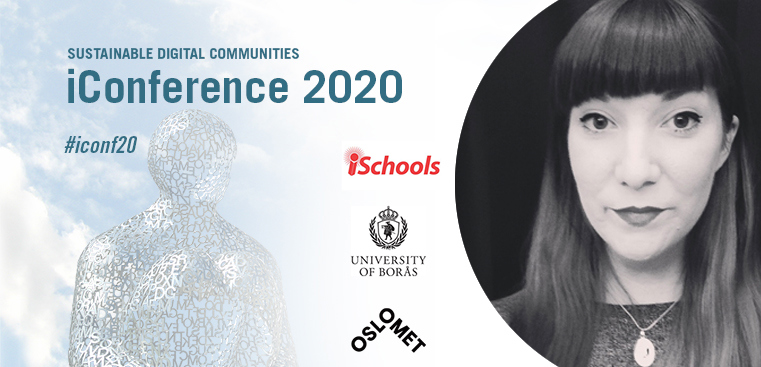Master’s student presented at iConference
2020-04-29

Hello Louise! This was the first time you presented at a scientific conference; how was it?
"I presented my poster both on Tuesday and Wednesday and I think it went very well. It was rewarding to tell people about my study and fun to get questions from participants from different parts of the world. I had written an abstract as a proposal for a poster that was then accepted, after which I developed a poster of my master's thesis work.”
Tell me: what's your work about?
"It's about access to information for university students in Cambodia and how this access is affected by floods. It has felt very rewarding to be able to portray that work and continue to discuss my findings.”
Is there anything special you will take with you from the conference from what you've heard so far?
"I've listened to so many rewarding presentations that it's hard to just pick out a few, but some of the ones I really appreciated were the presentation by Erik Borglund on Crisis management and the presentation by Amy Chew and Gabriella Delgado on their poster ‘Who gave you the right?’ I also appreciated Irene Lopatovska's presentation ‘Comparing intelligent personal assistants on humor function.’ The conference's keynote speeches have also been really good. On Wednesday, I listened to the presentation by Jussi Karlgren from Spotify and today (Thursday) I am looking forward to Dr. Lina Dencik's keynote speech.”
Finally, how do you feel that it has worked to conduct the conference virtually?
"When I presented, it usually went very well. Some had microphones that didn't work but we solved it by me using audio and video and the others’ communicating via pictures and chat. It was a nice experience that participation was so extensive and that people were involved and joined from their kitchen or living room. I am very impressed that the conference has been able to be conducted virtually in the little time it had to redirect from a physical encounter to a virtual one.”
About the study
Louise Dahlberg interviewed 15 university students in Cambodia about their access to information and how it is affected by floods. The study showed that students change their behaviour during monsoon seasons. They communicate and share information with teachers and they formulate creative strategies. For example, they do so through social media and apps. The conclusions led to a discussion of expanded information retrieval techniques as well as suggestions for practical kits that students could use during monsoon seasons. Such a kit could include portable WIFI, portable chargers, water-resistant protection for laptops or books, and more.

